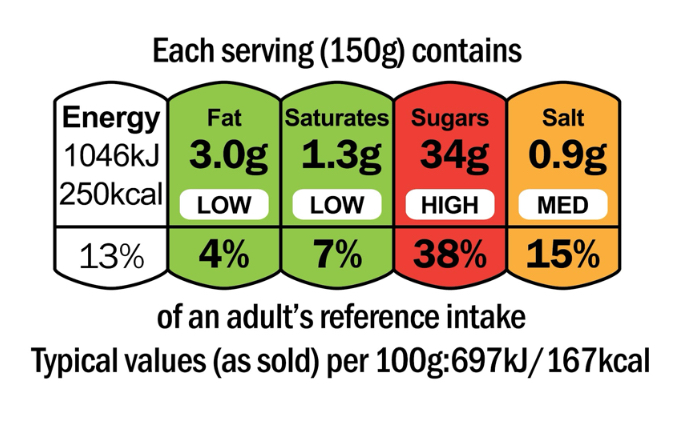 A bright, healthy smile isn’t only about brushing and flossing. Your daily diet greatly influences the strength and resilience of your teeth. Food fuels your body, but it also affects your enamel, gums, and overall oral health. Some foods protect and strengthen teeth, while others weaken them, leaving you more vulnerable to cavities and discoloration—a concern often emphasized by experts at Chicago loop dentistry.
A bright, healthy smile isn’t only about brushing and flossing. Your daily diet greatly influences the strength and resilience of your teeth. Food fuels your body, but it also affects your enamel, gums, and overall oral health. Some foods protect and strengthen teeth, while others weaken them, leaving you more vulnerable to cavities and discoloration—a concern often emphasized by experts at Chicago loop dentistry.
The good news is that small changes in your diet can have a big impact. By choosing foods that support dental health, you’re not just caring for your body—you’re investing in your smile.
Why Diet Matters for Dental Health
Teeth are made up of minerals, primarily calcium and phosphorus, with enamel serving as the protective outer layer. Enamel may be the hardest substance in the human body, but it isn’t indestructible. Acidic drinks, sugar, and even frequent snacking can wear it down. Once enamel erodes, it doesn’t regenerate.
That’s why diet is critical. The right nutrients help repair microscopic damage before it becomes serious. Foods rich in vitamins and minerals also help strengthen the tissues that support teeth, including the gums and jawbone. In short, your daily meals either strengthen or erode your dental defenses.
Foods That Strengthen Teeth
1. Dairy Products
Milk, cheese, and yogurt are classic smile-friendly foods. They’re rich in calcium, which fortifies enamel, and phosphorus, which helps rebuild minerals in weakened areas. Cheese also boosts saliva production, which naturally washes away acids and food particles.
2. Leafy Greens
Spinach, kale, and other leafy greens provide calcium and folic acid, essential nutrients for maintaining gum health. Their fiber makes you chew more, boosting saliva that helps clean your mouth and fight bacteria.
3. Crunchy Fruits and Vegetables
Apples, carrots, and celery work like natural toothbrushes. Their crisp texture scrubs the teeth surfaces while you chew. They also encourage saliva, which neutralizes acids from other foods. Apples in particular deliver a sweetness without the concentrated sugars found in candy or soda.
4. Nuts and Seeds
Almonds, walnuts, and sesame seeds contain calcium and phosphorus, minerals that restore enamel. They’re also a great alternative to sugary snacks, offering crunch and satisfaction without feeding cavity-causing bacteria.
5. Fatty Fish
Salmon, sardines, and mackerel give you vitamin D to absorb calcium and omega-3s to reduce gum inflammation.
6. Green and Black Tea
Tea contains compounds called polyphenols that slow the growth of bacteria in the mouth. This means less plaque buildup and a lower risk of cavities. Be mindful of added sugar or sweeteners, as they can counteract these benefits.
7. Water
Although it may not be considered a food, water is essential for maintaining dental health. It rinses away debris, keeps your mouth hydrated, and helps maintain a healthy pH balance. Fluoridated water also strengthens enamel directly, making it more resistant to acid attacks.
Foods That Weaken Teeth
Just as some foods protect your teeth, others undermine them. Knowing what to limit is as important as knowing what to eat.
- Sugary snacks and drinks feed harmful bacteria, which release acids that erode enamel.
- Sticky foods, such as dried fruit, cling to teeth, prolonging acid exposure.
- Acidic drinks, such as soda, sports drinks, and citrus juices, slowly wear down enamel.
- Frequent snacking keeps your mouth in a constant state of acid production, giving your teeth less time to recover and repair.
Putting It Into Practice
You don’t need to overhaul your entire diet to protect your teeth. Small, mindful shifts can go a long way:
- Swap soda for water or unsweetened tea.
- Add a handful of almonds instead of a sugary snack.
- Pair citrus fruits with cheese to balance acidity.
- End meals with raw vegetables to naturally clean your mouth.
Even chewing sugar-free gum after meals helps stimulate saliva and protect enamel.
The Bigger Picture
Diet is just one part of oral health. Brushing, flossing, and dental checkups still matter. But food is the foundation—nutrients like calcium, phosphorus, and vitamins strengthen teeth, protect gums, and support jawbones.
Over time, these choices add up. Just as poor diet can leave visible signs on your smile, a nutrient-rich diet can keep it bright and strong for years—every bite you take shapes your dental health. By being intentional about what you eat, you’re protecting more than your teeth—you’re preserving your confidence and well-being.


 A bright, healthy smile isn’t only about brushing and flossing. Your daily diet greatly influences the strength and resilience of your teeth. Food fuels your body, but it also affects your enamel, gums, and overall oral health.
A bright, healthy smile isn’t only about brushing and flossing. Your daily diet greatly influences the strength and resilience of your teeth. Food fuels your body, but it also affects your enamel, gums, and overall oral health.